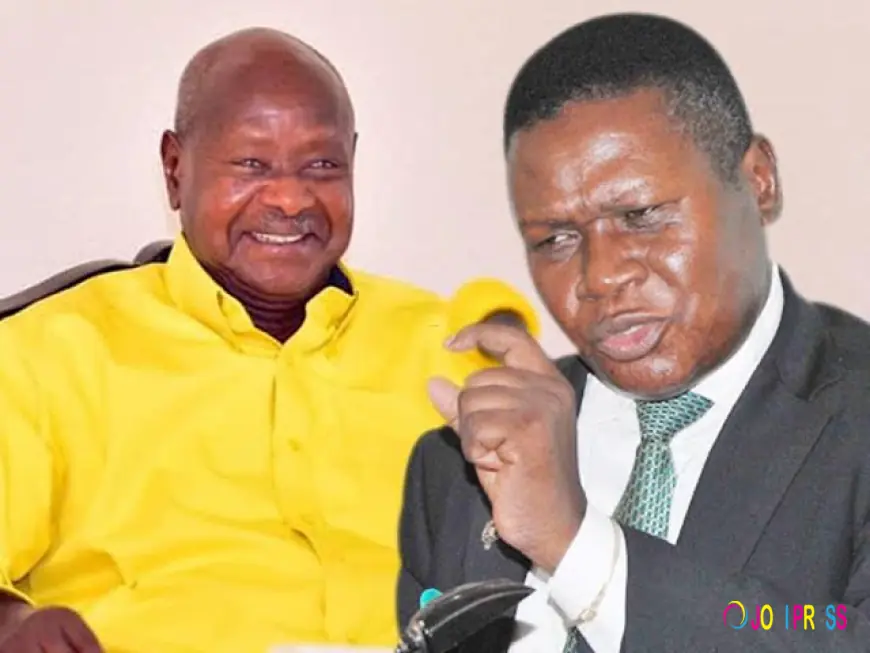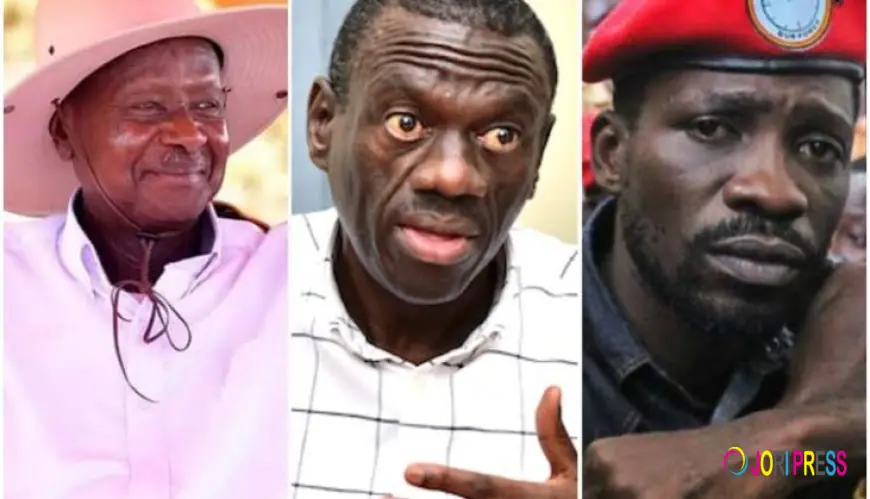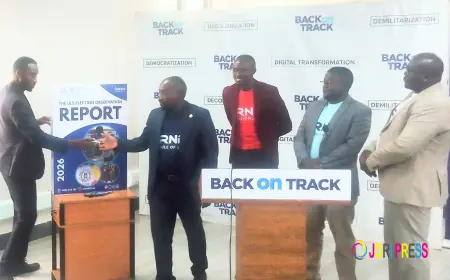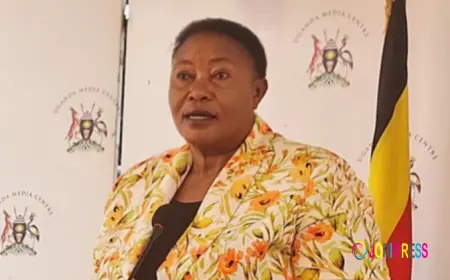"Bobi Wine Isn’t Museveni’s Biggest Fear, His Biggest Threat Is Kizza Besigye" Veteran Ugandan Politician Tells NUP President

Veteran political journalist and lobbyist Richard Baguma has openly advised National Unity Platform (NUP) leader Robert Kyagulanyi Ssentamu, popularly known as Bobi Wine, that President Yoweri Museveni does not fear him at all. According to Baguma, Museveni’s biggest concern in Uganda’s political landscape remains opposition heavyweight Dr. Kizza Besigye. He urged Bobi Wine to understand his position as an underdog and prepare strategically if he hopes to take state power in the future.

Baguma told Bobi Wine that he still has much to learn before competing with influential figures in Uganda, such as Museveni’s eldest son, Gen Muhoozi Kainerugaba, Chief of Defence Forces, and Museveni’s son-in-law, Odrek Rwabwogo, chairperson of the Presidential Advisory Committee on Exports and Industrial Development (PACEID). He stressed that the path to leadership is complicated and requires experience beyond grassroots popularity.
“I speak in good faith—Museveni cannot be overthrown through these elections you are participating in. Even if his state power were taken like in Sudan under Omar al-Bashir or Libya under Muammar Gaddafi, it will likely pass to those close to him, making it difficult for people like Bobi Wine,” Baguma said, warning of the challenges that lie ahead.
Baguma explained that running a country involves far more than rallying crowds. He questioned whether Bobi Wine’s team could manage international diplomacy, defend the government at the United Nations, or negotiate with major powers like the United States. Experience, strategy, and alliances are crucial for such responsibilities.

He urged Bobi Wine to seek mentorship from seasoned opposition leaders such as Maj Gen Mugisha Muntu and Dr. Kizza Besigye, who have decades of experience challenging Museveni’s system and possess strong networks within state institutions. According to Baguma, Museveni monitors Besigye more closely than Bobi Wine because of Besigye’s political knowledge and strategic influence.
Baguma also noted that while Bobi Wine enjoys significant support among the youth, especially in urban areas, this alone cannot secure power. “Museveni will use arrests, intimidation, and imprisonment to assert his authority over them,” Baguma warned, citing the harsh measures taken against political opponents in Uganda.
The article highlighted the government’s recent actions against perceived internal threats. For instance, Lt Gen Henry Tumukunde, a former spy master, was arrested for allegedly attempting to infiltrate Bobi Wine’s youth groups. Several youths involved remain imprisoned, demonstrating the serious security measures used to maintain control.
Kira Municipality legislator Ibrahim Ssemujju Nganda observed that Museveni is gradually transferring state power to his son Muhoozi as he ages. He noted that Muhoozi uses assertive measures to consolidate control while learning leadership responsibilities, stressing that elections remain the only viable opportunity for opposition leaders to gain influence. Missing this window could limit future political options.

Baguma referenced historical precedent, recalling that when Museveni assumed power in 1986, he sought guidance from respected figures such as the late Paul Kawanga Ssemogerere and Tanzania’s President Julius Nyerere to build governance structures. He advised Bobi Wine to similarly learn from experienced leaders in order to be prepared for potential leadership roles in the future.
Meanwhile, reports indicate ongoing discussions between Museveni’s government and opposition parties—including the Democratic Party, Uganda People’s Congress, Democratic Front, and Forum for Democratic Change—about forming a joint government to ensure a peaceful transfer of power. Although allegations of funding from Museveni have surfaced, the parties involved have denied such claims.
What's Your Reaction?
 Like
11
Like
11
 Dislike
0
Dislike
0
 Love
2
Love
2
 Funny
1
Funny
1
 Angry
0
Angry
0
 Sad
4
Sad
4
 Wow
4
Wow
4

















































